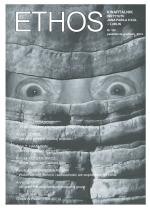 zobacz powiększenie | Ralph R. ACAMPORA – Of Corporal Compassion (trans. D. Chabrajska) |
|
The author addresses the question of how we can sensibly describe, explain, and interpret transhuman morality without, however, attempting to justify it. Instead of asking what justifies inclusion of other animals in the ethical sphere or what gives them moral standing or considerability he proposes an existential, phenomenological approach and the philosophic starting point in the experience of being a live body thoroughly involved in a plethora of ecological and social interrelationships with other living bodies and people. He holds that the ethical upshot or such a gestalt-shift in the ontological background effectively transfers the burden of proof from ethical “extensionism” or “expansion” to ethical isolationism or contraction (i.e., homo-exclusive anthropocentrism). From this perspective, the problem of traction for moral consideration of nonhuman animals dissolves. The author’s goal is then to describe, explain, and interpret the constitution and interspecific implications of the primordial experience of somatic sociability. Drawing on the fact that humans are animate bodies, bodies that are experienced and come to be known through interaction with other animate bodies, he investigates the ontology of animate modes of body as applicable to humans and at least some other nonhuman animals alike. In the author’s opinion, certain historical and methodological orientations lend themselves quite readily to this inquiry, among them some late-modern approaches, in particular those of 19th and 20th century classical continental philosophy, such as phenomenology, existential philosophy and hermeneutics. Summarized by Dorota Chabrajska Keywords: body, being, value, symphysis, somatic sympathy, interspecies ethos, transhuman morality, animal ethics The present article comprises two texts: The first one comes from Ralph R. Acampora’s book Corporal Compassion: Animal Ethics and Philosophy of Body (Pittsburgh: University of Pittsburgh Press, 2006, 1-5, © 2006 by University of Pittsburgh Press). The second is the author’s essay “Toward a Properly Post-Humanist Ethos of Somatic Sympathy,” included in Strangers to Nature: Animal Lives and Human Ethics, ed. G.R. Smulewicz-Zucker (Lanham–Boulder–New York–Toronto–Plymouth, UK: Lexington Books, 2012, 235-247, © 2012 by Lexington Books). Contact: E-mail: Ralph.R.Acampora@hofstra.edu http://www.hofstra.edu/faculty/fac_profi les.cfm?id=8 Pliki do pobrania: » 102.Acampora.content.pdf | |
